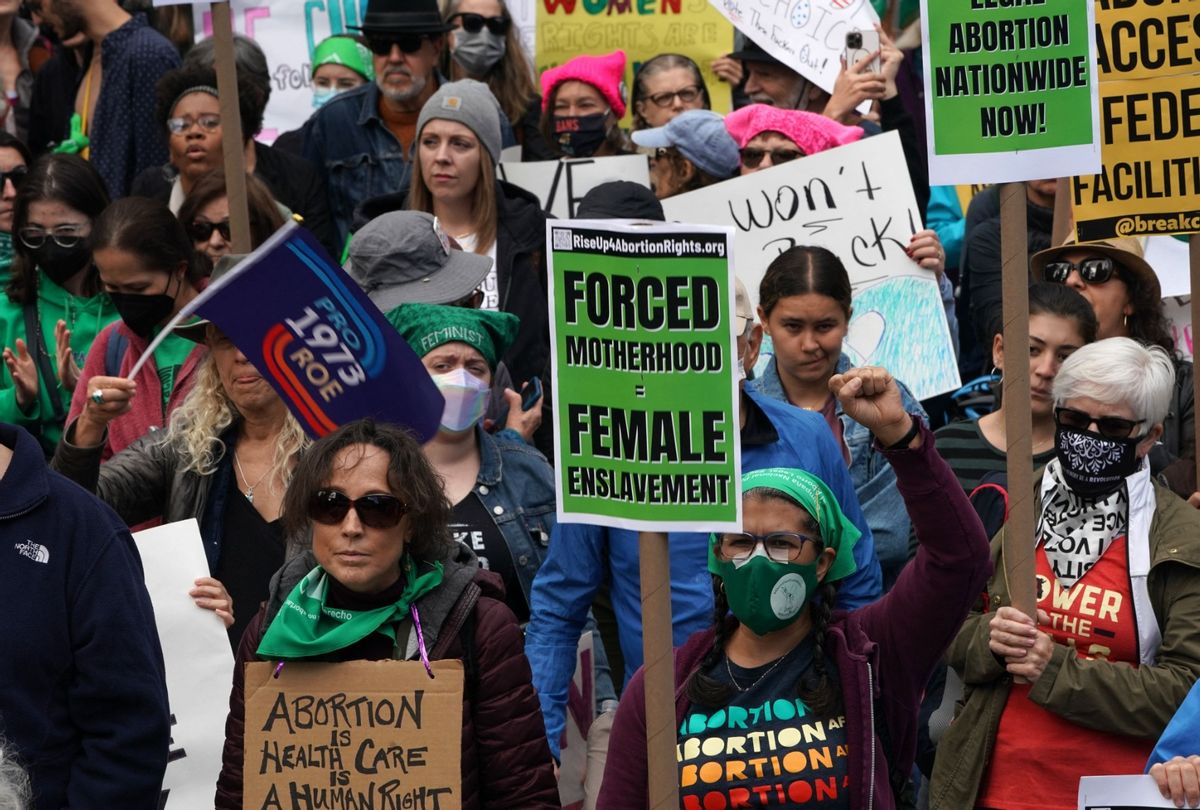A federal judge on Monday suggested that abortion may still be protected under the Constitution despite the Supreme Court overturning Roe v. Wade.
U.S. District Judge Colleen Kollar-Kotelly, who is overseeing a criminal case against 10 anti-abortion activists, said in an order that the Supreme Court's Dobbs v. Jackson Women's Health Organization ruling only found that the 14th Amendment did not provide a right to abortion but did not rule out that it may be covered under other constitutional protections, Politico first reported.
"[I]t is entirely possible that the Court might have held in Dobbs that some other provision of the Constitution provided a right to access reproductive services had that issue been raised," the order said. "However, it was not raised."
Kollar-Kotelly, a Clinton appointee, wrote that the 13th Amendment, which sought to ban slavery and involuntary servitude, "has received substantial attention among scholars and, briefly, in one federal Court of Appeals decision" on whether it could apply to abortion.
The judge cited a 1990 paper by Northwestern University Law Professor Andy Koppelman, which argued that when "women are compelled to carry and bear children, they are subjected to 'involuntary servitude' in violation" of that amendment.
The judge also cited a 1995 appellate court ruling related to a Utah abortion law, in which the panel of judges did not express a view on the "merits of the involuntary servitude argument" but concluded that "it is not frivolous."
The order came as Kollar-Kotelly oversees a case in which 10 anti-abortion activists were charged with conspiring to block access to a D.C. abortion clinic. The judge asked the defendants to address "whether the scope of Dobbs is in fact confined to the Fourteenth Amendment" and "whether, if so, any other provision of the Constitution could confer a right to abortion as an original matter … such that Dobbs may or may not be the final pronouncement on the issue, leaving an open question."
The attorneys for one of the defendants, Lauren Handy, argued that the Dobbs decision made the conspiracy charge against them moot.
"There is no longer a federal constitutional interest to protect, and Congress lacks jurisdiction," Handy's attorneys wrote. "The Dobbs court did not indicate that there is no longer a constitutional right to abortion; the court has made clear there never was."
Kollar-Kotelly indicated that the argument was overly broad since Dobbs is related to the 14th Amendment, but acknowledged that the justices may have concluded that nothing in the Constitution protects abortion.
"The Constitution does not confer a right to abortion," Justice Samuel Alito wrote in the majority decision.
But Kollar-Kotelly suggested that the statement may just be a "heuristic" and that the legal effect may be more narrow.
"The 'issue' before the Court in Dobbs was not whether any provision of the Constitution provided a right to abortion. Rather, the question before the Court in Dobbs was whether the Fourteenth Amendment to the Constitution provided such a right," she wrote. "That is why neither the majority nor the dissent in Dobbs analyzed anything but the Fourteenth Amendment. In fact, on the Court's initial review, not a single amicus brief mentioned anything but the Fourteenth Amendment and the unratified Equal Rights Amendment."
Kollar-Kotelly added that the federal law cited in the indictment against the activists does not only regulate access to abortion but other reproductive health services as well.
Want a daily wrap-up of all the news and commentary Salon has to offer? Subscribe to our morning newsletter, Crash Course.
Legal experts expressed skepticism about the judge's argument.
"This isn't a terrible theory in the abstract but it is also dead upon arrival at the Supreme Court. Performative jurisprudence in the making," tweeted Anthony Michael Kreis, a professor at the Georgia State University College of Law.
"There is some room for lower-court judges to decline to extend Supreme Court precedent to new contexts, but judges cannot take the Supreme Court's silence as a ground to subvert Supreme Court precedent," Josh Blackman, a Constitutional law professor at the South Texas College of Law Houston, wrote in Reason.
"This is solid trolling and more judges should treat this Supreme Court with the contempt that it deserves," tweeted Ian Millhiser, who covers the Supreme Court for Vox, "but obviously this lawsuit is going nowhere for as long as the GOP controls the Supreme Court."

Shares